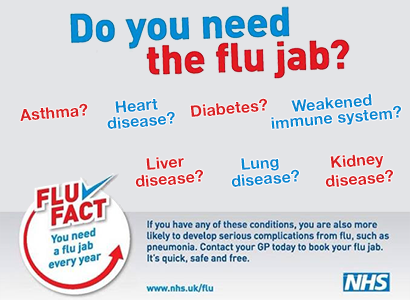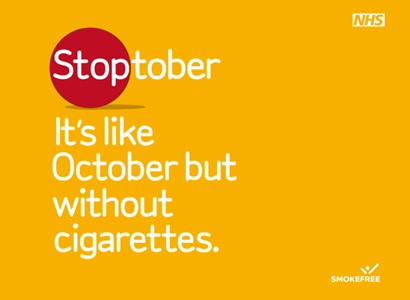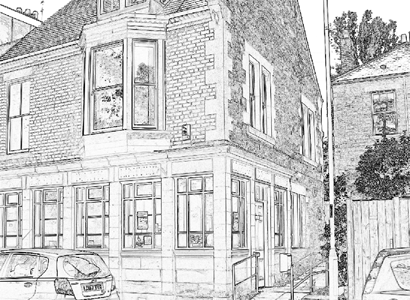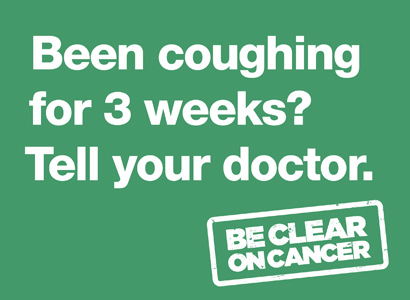Self Treatment Of Common Illnesses and Accidents
Many common aches and pains can be simply treated at home without the need to consult a doctor.
There is also a Minor Ailments scheme operating in the area. The minor ailments scheme is run by local pharmacies. If you have hay fever, cough, cold, flu, earache, or head lice you don’t need to wait to see the Doctor. You can go to straight to your local pharmacist for the help you need as under the minor ailments scheme the pharmacists are able to prescribe some of the medications, which normally you would see your doctor for. It is possible that the list of ailments may be increased in the future.
Please ask for a leaflet at reception if you require more information.
Head Lice
What is it?
Lice are small parasites that live on the surface of the body. In children they mainly infect the hair and the scalp.
Symptoms – Intense itching of the scalp. It may be possible to see the eggs of the lice (nits) attached to the hair and occasionally a louse itself may be seen crawling through the hair.
Treatment – If you find lice the hair should be treated with a lotion which will be recommended to you by a health professional e.g. school nurse, health visitor, GP, pharmacist. The lotion can be purchased directly from the chemist.
All children should be kept off school until the hair has been treated.
Tip: Before using a small-toothed comb to remove nits from the hair, soak the hair with hair conditioner – this makes removal of the nits easier and eliminates any discomfort.
Diarrhoea
In adults, diarrhoea is usually caused by a virus infection and is therefore unable to be treated directly.
Holiday diarrhoea can be due to bacteria. Consult your doctor if the symptoms persist for more than a few days.
Diarrhoea in very young children and babies needs careful attention. Most babies have loose bowel action during their first six months due to their predominantly liquid diet. If concerned by diarrhoea in a baby, telephone for advice.
If the symptoms persist for more than 24 hours, or are accompanied by vomiting or weakness, consult your doctor.
Gastroenteritis
Gastroenteritis describes a group of diseases affecting the stomach or part of the intestine. Symptoms are often diarrhoea, sickness and stomach-ache. Because the lining of the stomach is likely to be inflamed, medicines are often immediately vomited up.
Large quantities of water, orange juice or thin soup should be taken to counter the effects of dehydration. Consult your doctor if symptoms persist for more than a day or, in the case of babies or young children, six hours.
Stomach-ache
Most attacks are not serious and are usually caused by indigestion or wind. A hot water bottle will often relieve the symptoms and, in the case of indigestion, a teaspoon of bicarbonate of soda in half a glass of water will help.
If the pain lasts for longer than eight hours or increases in intensity you should consult your doctor.
Burns
Apply large quantities of cold water to the affected area as soon as possible and maintain this until the pain subsides. This may take as long as 15 minutes! If the skin is unbroken but blistered, apply a loose, dressing and see the Practice Nurse.
If the burn is larger than four or five inches in diameter or if the skin is broken, attend accident and emergency as soon possible.
Colds
Even in this day and age there is still no magic cure for the common cold. Go to bed, drink plenty of fluids like water or juice. If you have a headache or are feverish, take simple analgesia like paracetamol. As colds are caused by a virus antibiotics will have no effect.
Back Pain
Back pain causes 13 million working days to be lost in Britain each year. The spine supports the whole weight of the upper body so it is understandable that it sometimes goes wrong.
Because of the complex nature of the spine it is advisable to consult your doctor if back pain persists for more than a few days. If, as is usual, the pain has been caused by abuse i.e. lifting too heavy weights etc, be sensible and take things easy. Take care to sit as upright as possible with a support for the small of the back. Take aspirin or paracetamol, which will not only relieve the pain but will help to relieve inflammation. Your pharmacist may also be able to offer advice on suggested medications for this type of pain relief. Your doctor may well prescribe stronger drugs, heat treatment, gentle exercise or some kind of supportive corset.
Sprains
Treat with a cold compress, containing ice if possible, for 15 to 30 minutes to reduce the swelling. Then apply, firmly, a crepe bandage and give the sprain plenty of rest until all discomfort has subsided.
Further strain will inevitably lead to further swelling and a longer recovery period.
If concerned please contact accident and emergency.
Pressure Damage
Pressure damage is far easier to prevent than cure. It is caused by prolonged pressure to certain parts of the body when lying or sitting in bed for long periods. They can be prevented by encouraging the patient to shift position as often as possible. Take care to smooth out creases in the bottom sheet to avoid irritation. If red marks appear at the pressure points such as heels, elbows, buttocks and hips, inform the doctor before they get worse.
Exercise
It helps reduce weight.
It helps reduce stress.
It makes you feel and look better.
Once you have found a form of exercise you enjoy, do it
Often enough – two or three times a week for 20-30 minutes.
Hard enough – to make you fairly breathless.
Long enough – it must become part of your life for good.
Remember if you are not used to exercise start slowly and build up gradually.
Both doctors and nurses will be happy to advise you and your family about these important changes.
Preparing for pregnancy
If you smoke, both you and your partner should stop. A woman who smokes during pregnancy stands a 30% greater risk of miscarrying or losing the baby at birth due to a variety of complications.
You should also ensure that your alcohol consumption is kept to an absolute minimum if you are unable to abstain totally.
Both partners should give attention to their diet with particular regard to choosing fresh unrefined foods.
Women should take Folic Acid 400 micrograms daily to reduce the risks of spinal defect in the baby.
Ask your doctor to check if you are immune from rubella (German measles). If not, he will arrange immunisation. In such a case you should continue with a barrier method of birth control for a period of at least two months whilst the vaccine takes effect.
Problems in Conceiving
One in ten couples experience some degree of difficulty in conceiving. This difficulty may equally be caused by a problem concerning either partner. The causes of infertility are wide and varied but most can be helped with treatment. Good pre-conceptual care will lessen the need for such treatment.
Alcohol
A little of what you fancy…
Alcohol is a depressant, which has the effect of dulling the brain and nervous system.
In small quantities, alcohol can actually be beneficial to health.
In large quantities, on a regular basis, it can have a very serious negative effect on health. At one extreme it can kill.
CIRRHOSIS of the liver, for instance, is killing an increasing number of people, as are drivers who are over the limit. At the other end of the scale, excess consumption of alcohol can lead to poor co-ordination, impaired vision, a weakening of the immune system, impotence and obesity.
What is a safe limit?
An accepted safe limit is 21 units a week for men and 14 units for women. A unit being approximately a glass of wine, half a pint of beer or a single measure of spirit. This recommended maximum presumes that the consumption is spread throughout the week and not consumed all at once in a ‘binge’.
A man’s liver can process only 8 units of alcohol within a 24-hour period and can take 72 hours to recover fully. It is easy to see how easy it is to damage this vital organ.
How to cut down
How about a bottle of mineral water instead of wine with your lunch? Always drink water alongside wine with a meal and try a spritzer (wine mixed with mineral water) instead of a straight glass of wine.
How to avoid a hangover
The most effective way to avoid a hangover is not to drink too much! Failing that, if you have over indulged, drinking large quantities of water before going to bed is very effective in warding off the worst effects.
A healthy Diet
You are what you eat…
If your diet is lacking, your body has ways of letting you know; for example, you may be overweight or underweight or you may have a spotty complexion or constipation. Ultimately, a bad diet can lead to serious problems such as heart disease.
A good diet helps fight off disease and makes you look and feel good.
Five stepts to a healthier diet
EAT MORE fruit and vegetables. Aim for at least five portions a day.
INCREASE fibre intake.
REDUCE fat intake.
LIMIT alcohol consumption to sensible levels.
REDUCE salt intake.
If you would like dietary advice, please make an appointment with the practice nurse.
Advice for travellers
Before you go
Well before travelling abroad, check with your travel agent or the tourist office/embassy of the country you intend to visit on any special precautions you may need to take.
At least two months before departure, discuss any vaccination requirements with your practice nurse (travel nurse).
Contraception, sexual health promotion
Ensure you have adequate travel insurance
Ensure that if you take prescribed medication that you have enough for the duration of your holiday.
Pack a small first aid kit containing: adhesive dressings, insect repellent, antiseptic cream and water purification tablets.
When abroad
Check on the quality of drinking water. If in doubt either drink only bottled water or use water purification tablets. Avoid ice in drinks as this may very well have been made from suspect water. Raw vegetables, salads and fresh fruit should be carefully washed in clean water. If in doubt, stick to freshly cooked food.
Beware of the sun! Use a high factor sunscreen particularly in the first few days of exposure. Children in particular should be monitored closely in this respect. In hot climates drink plenty of non-alcoholic drinks. If you are not passing water regularly, you are not drinking enough.
On your return
If you fall ill, don’t forget to tell your doctor that you have travelled abroad. If you have received treatment abroad, tell your own doctor on your return. When donating blood, tell the transfusion staff which countries you have visited.
The practice nurse provides a full travel advice and immunisation service. Please make sure you observe the following guidelines:
- Book an appointment with the nurses as early as possible, e.g. two months prior to departure.
- Make sure you book your appointment with the travel nurse.
- Some vaccinations are chargeable, so please bring money or a cheque book with you.
Smoking
Why give up?
Over 100,000 people die, each year in the UK, from smoking-related diseases.
Every cigarette you smoke can shorten your life by an average of five and a half minutes.
Babies of smokers are, on average, 200 grammes lighter than those of non-smokers.
Smokers smell!
How to give up
Stopping smoking is all about motivation. Without the real desire to give up you are unlikely to succeed. You must want to give up rather than feel you should give up.
Set a date a week or so in the future when you intend to stop.
Tell all your friends, relations and work colleagues that you’re giving up on that day and ask for their support and encouragement. If at all possible, find someone to give up with you.
When the big day comes, plan it carefully with plenty to keep you occupied. Avoid situations where the desire to smoke will be strongest such as whilst drinking.
Finally, carefully put the money you would have spent on cigarettes to one side, each day, to save up for some special treat as a reward.
If you’ve tried everything and failed but are still keen to give up, seek help from our Practice Nurse who provides a smoking cessation service and she will offer support during Nicotine withdrawal.
Preventing a relapse!
Whenever you feel the need for a cigarette, go back to the procedure, which helped you give up in the first place.
Avoid complacency and remember that you’re a non-smoker!
Think how unpleasant smokers smell now that you’ve given up. Do you want to smell like them?

 Sign in
Sign in



